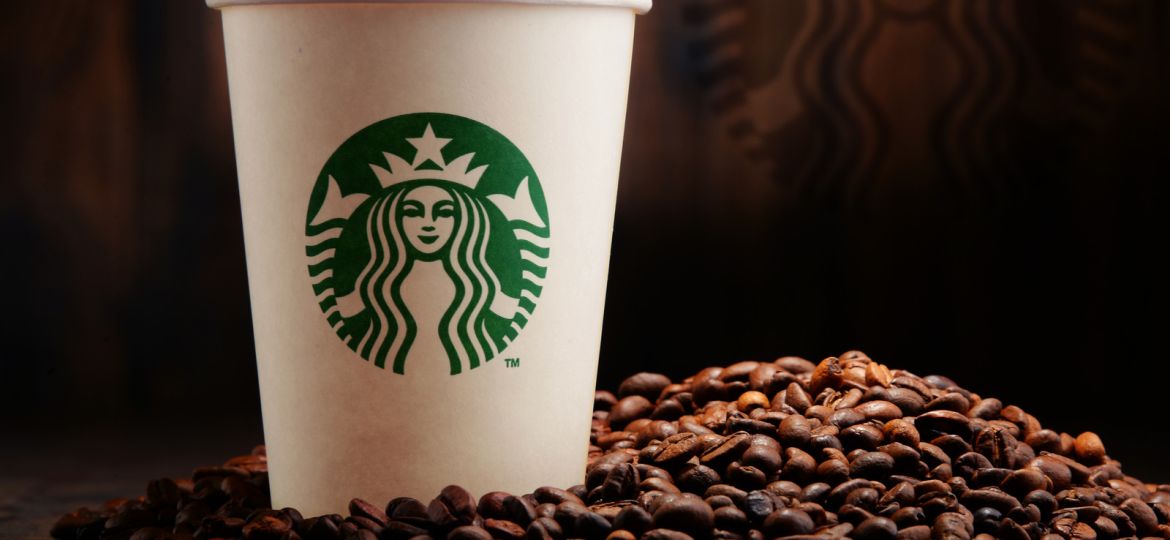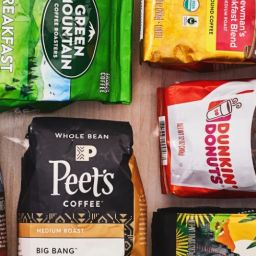
Starbucks, a global coffee giant, has significantly influenced coffee culture and the industry. Its commitment to ethical sourcing has been a topic of much discussion. Fair Trade coffee, on the other hand, emphasizes equitable trading conditions, fair compensation for farmers, and sustainable farming practices. The relationship between Starbucks and Fair Trade coffee offers a fascinating insight into the world of ethical coffee sourcing.
Fair Trade coffee aims to empower farmers, ensuring they receive fair payment and work under decent conditions. It’s about more than just coffee; it’s a movement towards more ethical, transparent, and sustainable practices in the coffee industry.
Key Takeaways
- Starbucks’ Involvement with Fair Trade and C.A.F.E. Practices: Starbucks is among the world’s largest purchasers of Fairtrade-certified coffee, striving to bring ethical coffee to its customers worldwide. The company’s C.A.F.E. Practices further underscore its commitment to ethical sourcing, focusing on quality, economic transparency, and environmental stewardship.
- The Economic, Social, and Environmental Aspects of Starbucks’ Coffee Sourcing: Starbucks’ sourcing policies emphasize not only economic transparency but also social responsibility and environmental leadership. Through its C.A.F.E. Practices and Fair Trade engagements, Starbucks aims to create a positive impact across its supply chain, benefiting farmers, communities, and the environment.
- The Impact of Starbucks’ Policies on Farmers and the Environment: By adhering to Fair Trade and C.A.F.E. Practices, Starbucks contributes to improved livelihoods for coffee farmers and promotes sustainable farming practices. These efforts are designed to support farmer communities and foster environmental conservation.
Does Starbucks Use Fair Trade Coffee?
Starbucks stands out as one of the world’s largest buyers of Fairtrade-certified coffee. This commitment brings ethical coffee to enthusiasts globally, showcasing Starbucks’ dedication to responsible sourcing. The company’s journey with Fair Trade began in 2000, marking a significant step toward more ethical practices in the coffee industry. Over the years, Starbucks’ engagement with Fair Trade has evolved, reflecting its ongoing commitment to ethical sourcing and support for coffee farmers worldwide.
C.A.F.E. Practices
Starbucks introduced its Coffee and Farmer Equity (C.A.F.E.) Practices to enhance the sustainability and ethical sourcing of its coffee. This comprehensive program sets the bar high for quality, economic transparency, social responsibility, and environmental leadership.
The C.A.F.E. Practices ensure that Starbucks’ coffee is sourced responsibly, prioritizing the well-being of farmers and the planet. Economic transparency is a cornerstone of the program, ensuring farmers are fairly compensated for their produce. Social responsibility is equally critical, with Starbucks emphasizing fair labor practices and community development.
Environmental leadership under C.A.F.E. Practices signifies Starbucks’ commitment to sustainability. The company promotes agricultural practices that conserve water, preserve biodiversity, and reduce chemical use. Lastly, the unwavering focus on quality means that every cup of Starbucks coffee not only tastes good but also comes with the assurance of ethical sourcing.
Fair Trade Certification
Fair Trade certification plays a pivotal role in Starbucks’ approach to sourcing coffee. This certification ensures that farmers are paid fair prices for their beans, promoting greater equity in international trade. For Starbucks, incorporating Fair Trade coffee into their offerings demonstrates a commitment to ethical practices and support for the farmers’ communities. It’s a way for Starbucks to contribute positively to the economic stability of coffee growers and to advocate for better working conditions and environmental practices.
Impact on Farmers and the Environment
Starbucks’ ethical sourcing initiatives, including Fair Trade and C.A.F.E. Practices, aim to benefit both farmers and the environment. These programs provide farmers with more stable incomes and promote sustainable farming methods, which can lead to improved livelihoods and community development. On the environmental front, Starbucks encourages practices that reduce the ecological footprint of coffee farming, such as water conservation and reduced pesticide use.
However, the impact is nuanced. While these initiatives offer numerous benefits, critics argue that the scope for improvement remains vast. The challenges of ensuring consistent and comprehensive compliance with these standards, alongside the complexities of global supply chains, present ongoing hurdles.
Critiques and Challenges
Despite Starbucks’ efforts, some question the depth and reach of its ethical sourcing practices. Critics argue that while certifications and programs like C.A.F.E. Practices are steps in the right direction, they might not fully address the complexities and systemic issues in coffee production. There’s a debate over whether these initiatives can significantly change the industry or if they serve as more of a branding effort.
FAQs
Q: How do Starbucks’ policies impact coffee farmers?
A: Starbucks’ ethical sourcing initiatives, like Fair Trade and C.A.F.E. Practices, are designed to improve farmers’ income, ensure fair labor practices, and encourage sustainable farming. These efforts aim to create a more stable and equitable environment for coffee growers.
Q: What’s the difference between Rainforest Alliance and Fairtrade certification?
A: Both certifications aim to promote sustainable and ethical practices, but they focus on different areas. Rainforest Alliance primarily focuses on environmental sustainability and biodiversity conservation, while Fairtrade emphasizes fair prices and working conditions for farmers.
Q: Where does Starbucks source its coffee from globally?
A: Starbucks sources its coffee beans from nearly 30,000 farms across the world, including countries like Brazil, Colombia, Guatemala, and Kenya. The company commits to ethical sourcing, ensuring that its global supply chain aligns with its standards for environmental stewardship and social responsibility.
Q: How does Starbucks’ commitment to Fair Trade coffee benefit consumers?
A: By choosing Starbucks’ Fair Trade coffee, consumers support ethical sourcing practices that promote better living conditions for farmers and sustainable farming methods. It also allows consumers to enjoy high-quality coffee with a clear conscience, knowing their choice contributes to a more equitable industry.
Q: Has Starbucks always been involved in Fair Trade?
A: Starbucks has been working with Fair Trade certification since 2000 and has grown to become one of the largest purchasers of Fairtrade-certified coffee in the world. This long-term involvement reflects the company’s commitment to ethical sourcing and its impact on the global coffee industry.
Final Thoughts
Starbucks has made a significant commitment to ethical sourcing, integrating Fair Trade coffee into its supply chain and developing its own C.A.F.E. Practices. These efforts reflect the company’s aim to balance quality with responsibility, influencing the broader coffee industry and consumer expectations.
The implications for consumers are profound, offering a more ethically conscious choice when it comes to their daily coffee. For the industry, Starbucks sets a benchmark, encouraging other companies to follow suit in adopting sustainable and ethical practices. As the conversation around ethical sourcing continues to evolve, Starbucks’ role in shaping this landscape remains a focal point for stakeholders across the coffee supply chain.









